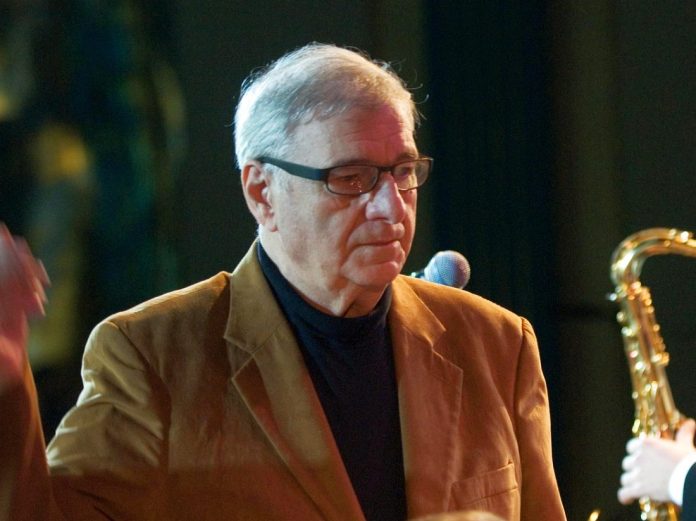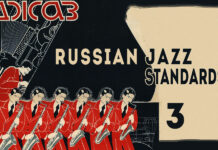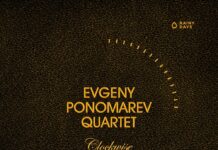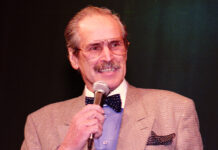by Cyril Moshkow
Shortly upon his arrival in Krasnodar, Russia, where he was scheduled to conduct the Krasnodar Municipal Big Band during two planned concerts with featured soloist Michel Legrand, the Soviet jazz veteran bandleader, arranger, composer, and alto saxophonist George Garanian was hospitalized in the morning hours of January 11, 2010. According to his wife, Nelly Zakirova, the 75-years-old bandleader suffered a heart attack, which eventually led to his death.
George (Georgy) Garanian was born in Moscow on August 14, 1934. He belonged to the 1950s «jazz engineers» generation—a circle of musicians, mostly graduate and postgraduate students at Moscow and Leningrad’s technical and engineering universities, with no background in classical music training, but with sheer admiration of the new, post-WWII jazz styles. Their jazz education consisted of endless careful transcriptions of the solos played by American jazz stars, using not the original American records, which were not legally available behind the Iron Curtain, but either taped transmissions from the Voice of America (and its host Willis Conover, whose slow and clear «special English» became the source of English language education for those enthusiasts,) or the «jazz on the bones,» self-made 78s records cut on used X-ray film, with somebody’s broken ribs in the background.
In 1958, Garanian became the first Soviet-born soloist accepted in the famed Oleg Lundstrem Orchestra, the swing band once based in Shanghai in the 1930s, which moved to its members’ distant homeland, Russia, in 1947.

In the 1960s, Garanian worked in Moscow Radio’s Vadim Lyudvikovski Big Band, where he showed a considerable passion for arranging the music. In 1973, the new Soviet Television and Radio Committee Chairman, Sergey Lapin, who hated Western music, fired the entire Radio Big Band and for a while got rid of all jazz in the Soviet TV and radio programming; Garanian, and a few chosen instrumentalists from the former Lyudvikovski Big Band, formed the core of the new studio band, Melodia, which worked for the eponymous record label, the only record company in the U.S.S.R.
Garanian spent about fifteen years as Melodia’s director, arranging music for the country’s leading pop singers and singing film stars, and directing the Melodia Big Band for dance albums. He did not play a lot of saxophone at that time, but, as director and conductor, made sure that the orchestra, which consisted of the leading Soviet jazz soloists, would record a few albums of his arrangements of jazz standards and Garanian’s originals. Some of his original music leaned towards the realm of light fusion sounds, even disco; but some, like their 1974 mega seller, “Labyrinth,” would eventually become the first exposure to jazz rock fusion for hundreds of thousands of Soviet teenagers (note than most of American music, and Western music in general, was not easily available behind the Iron Curtain back then.)
In post-Soviet Russia after 1991, Garanian lost his position of government-supported studio orchestra boss, but became one of the busiest bandleaders instead. In early 2000s, he would simultaneously work as conductor and artistic director in up to four big bands in several Russian cities, including the renewed Melodia Big Band, the Krasnodar Municipal Big Band, and, in 2003—2006, the Oleg Lundstrem Orchestra. Garanian toured extensively, mostly with either of his multiple big bands, performing jazz evergreens and/or Soviet song and movie music classics in his own arrangements, very accessible to general public. He resumed his intense alto sax playing in the early 1990s, but, obviously, never reached his own former level as soloist. However, at one stage in mid-1990s he also toured in a piano-guitar-sax trio setting (with Alexey Kuznetsov on electric hollow-body guitar and Daniil Kramer on piano) where he soloed a lot.
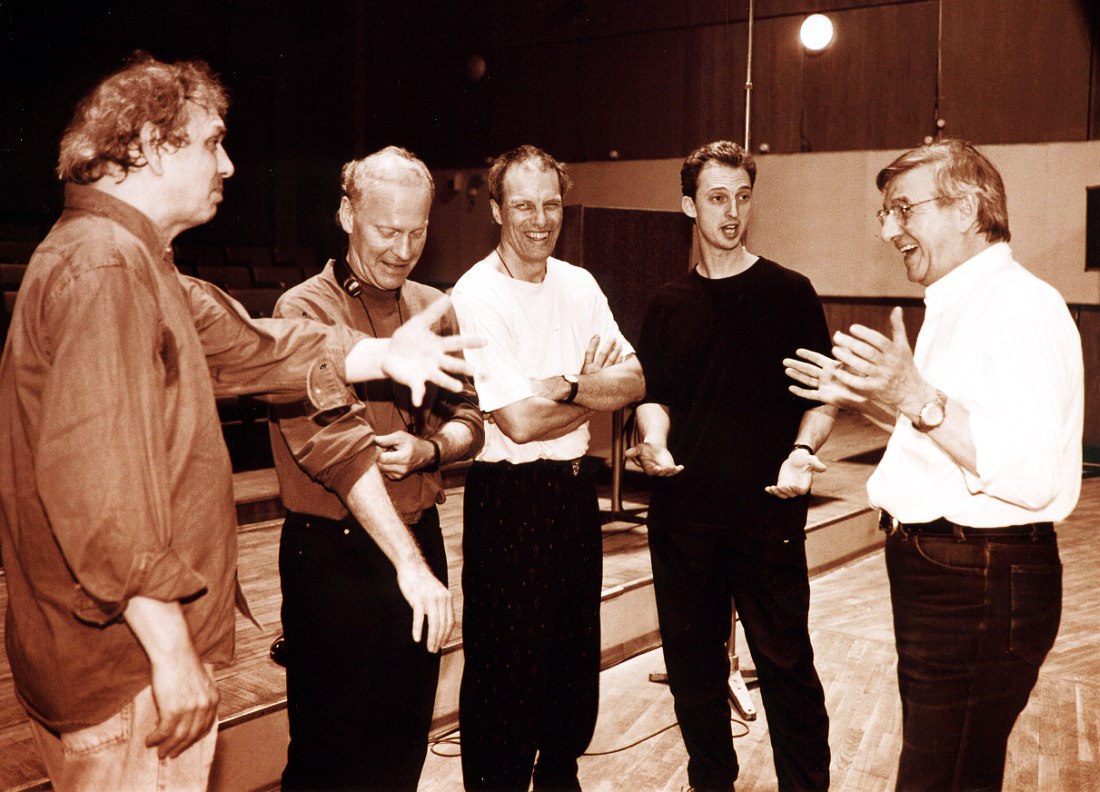
In 1999, Garanian conducted the Tchaikovsky Symphony Orchestra during the American fusion band Oregon studio sessions at the former Moscow Broadcasting and Sound Recording House studios, which eventually led to the Grammy-winning «Oregon in Moscow» 2CD release in 2000. Produced by Pat Metheny Group’s bassist, Steve Rodby, the album received four Grammy nominations and scored one win (in engineering,) thus partly making Garanian the first non-classical Grammy nominee from Russia.
VIDEO: Garanian with his first short-lived post-Soviet big band, 1992
httpv://www.youtube.com/watch?v=Xl6xykyItX0

